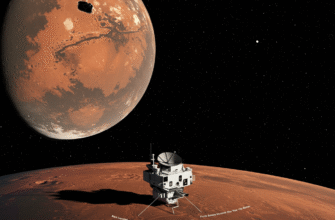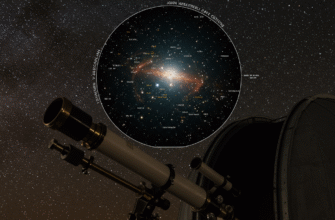The tale of Atlantis, a magnificent island civilization swallowed by the sea in a single day and night of misfortune, has captivated imaginations for millennia. First described by the Greek philosopher Plato in his dialogues “Timaeus” and “Critias,” Atlantis stands as a potent symbol of lost glory, advanced knowledge, and catastrophic demise. While its literal existence remains a subject of intense debate, the narrative of its fall raises an intriguing question: could celestial events, forces from beyond our world, have played a role in this legendary destruction?
Plato’s account paints a vivid picture of a highly advanced society, rich in resources and architectural marvels, that eventually succumbed to hubris and divine retribution. The end came swiftly and decisively: “There occurred violent earthquakes and floods; and in a single day and night of misfortune all your warlike men in a body sank into the earth, and the island of Atlantis in like manner disappeared in the depths of the sea.” This description points to geological upheaval on an immense scale. But what could trigger such widespread devastation so suddenly?
Whispers from the Cosmos: Potential Celestial Culprits
The Earth is not an isolated system; it constantly interacts with the wider cosmos. Throughout its history, our planet has been shaped by events originating far beyond its atmosphere. When we consider the scale of destruction Plato described for Atlantis, certain celestial phenomena emerge as potential, if highly speculative, candidates.
The Impact Hypothesis: A Cosmic Hammer Blow
Perhaps the most dramatic and directly destructive celestial event is the impact of an asteroid or comet. A sufficiently large object striking the ocean could generate mega-tsunamis of unimaginable height and power, capable of inundating coastal regions and entire islands. The impact itself would release energy equivalent to thousands or even millions of nuclear bombs, triggering massive earthquakes and volcanic activity as the Earth’s crust reverberates from the shock. The sky could darken for months or years due to ejected debris, leading to a “cosmic winter” and ecological collapse. If Atlantis was an island nation, as Plato described, it would be exceptionally vulnerable to such an ocean impact.
Even an airburst of a large meteor, exploding high in the atmosphere, could unleash devastating shockwaves and thermal radiation over a vast area. While perhaps not sinking an entire continent-sized island, it could certainly obliterate cities and cause widespread conflagrations and localized tsunamis.
Plato’s dialogues, “Timaeus” and “Critias,” written around 360 BC, are the primary ancient sources for the legend of Atlantis. He describes it as a powerful naval force located “beyond the Pillars of Hercules” that besieged Ancient Athens but was ultimately defeated and then submerged by earthquakes and floods. The details provided by Plato have fueled centuries of speculation and attempts to locate the lost island.
Solar Storms and Energetic Outbursts
While less likely to cause direct physical submergence, extreme solar events warrant a brief thought, particularly if one imagines Atlantis possessing advanced, perhaps even electrically-based, technologies. A massive solar flare or coronal mass ejection (CME) hitting Earth could, in theory, disrupt or destroy sophisticated technological infrastructure. However, translating this into the sinking of an island requires a significant leap, perhaps by suggesting it disabled critical systems maintaining the island’s stability, if one were to entertain highly advanced, unknown Atlantean technologies. This is, of course, pure conjecture and far less direct than an impact event.
Echoes in Myth and Earth’s Scars?
The story of Atlantis doesn’t exist in a vacuum. Many cultures around the world possess ancient flood myths, tales of great deluges that wiped out previous ages of humanity. Could these be fragmented memories of a real global or series of large regional cataclysms, perhaps triggered by celestial events like comet impacts causing tsunamis or rapid sea-level changes?
Some researchers have pointed to geological and archaeological evidence of sudden environmental shifts in Earth’s past. The Younger Dryas period, roughly 12,900 to 11,700 years ago, was a time of abrupt climate change. One controversial hypothesis suggests that an airburst or impact from a fragmented comet triggered this cooling event, causing widespread wildfires and the extinction of megafauna. If a sophisticated civilization existed around this time, it would have been severely impacted. While the Younger Dryas impact hypothesis is debated, it illustrates the kind of event that could have catastrophic global consequences.
However, it’s crucial to state that no direct, irrefutable archaeological evidence has ever been found to support the existence of Atlantis as Plato described it, nor is there definitive proof linking a specific known celestial event to its supposed destruction at a specific time that matches Plato’s timeframe (around 9,600 BC by his reckoning).
The Search for a Cosmic Trigger
Proponents of a celestial cause for Atlantis’s demise often look for coincidences in timelines. They might point to known comet appearances, meteor showers recorded in ancient annals (though these are often much later than Plato’s dating), or geological layers showing evidence of sudden upheaval. The challenge lies in connecting these dots definitively. An ancient impact crater in the ocean, for example, might be a candidate, but dating it precisely and linking it to a lost civilization for which we have no physical remains is an enormous hurdle.
The Carolina Bays in the United States, elliptical depressions whose origin is still debated, have been cited by some as evidence of an ancient meteor shower or impact ejecta. Similarly, various submarine geographical features have been speculatively identified as remnants of Atlantis or impact sites. Yet, mainstream geology often offers more prosaic, terrestrial explanations for these features.
Why the Cosmic Connection Captivates
The idea of Atlantis being destroyed by an event from the heavens adds another layer of awe and terror to an already dramatic story. It taps into a primal fear of uncontrollable, overwhelming forces. A cosmic catastrophe provides a suitably epic explanation for the disappearance of such a purportedly grand civilization. It elevates the Atlantis myth from a tale of human failing and divine retribution (as Plato primarily framed it) to a narrative of cosmic destiny or misfortune.
Authors and theorists, from Ignatius Donnelly in the 19th century to more contemporary writers, have explored various cosmic scenarios. Donnelly, in his book “Atlantis: The Antediluvian World,” suggested a comet might have been responsible. These theories often blend Plato’s account with other myths, geological speculation, and sometimes, more esoteric ideas. The lack of concrete evidence allows for a wide field of imaginative interpretation.
It’s a narrative that resonates because it speaks to our own vulnerabilities. In an age where we understand the potential threat from Near-Earth Objects, the idea that a past civilization might have succumbed to such a fate feels chillingly plausible, even if Atlantis itself remains firmly in the realm of legend.
Balancing Legend with Plausibility
From a strictly scientific and historical standpoint, most scholars view Plato’s Atlantis as a philosophical allegory, a thought experiment to explore themes of ideal societies, imperialism, and the consequences of hubris, rather than a literal historical account. They point out that Plato was a philosopher, not a historian in the modern sense, and his works often used fictional settings to illustrate philosophical points.
That said, the mechanisms of destruction Plato describes – earthquakes and floods – are very real. And celestial events are capable of triggering such phenomena. So, while Atlantis itself may be a myth, the type of cataclysm it supposedly suffered could, in principle, be linked to a cosmic source. The challenge is the absence of any specific evidence tying the legend of Atlantis to a known celestial event.
If one were to entertain the notion of a highly advanced, prehistoric civilization that was wiped out, an impact event would certainly be a prime candidate for the cause of its destruction. The sheer scale and suddenness align well with the dramatic narratives of lost worlds. The question remains: was Atlantis one such civilization, or is it purely a product of Plato’s philosophical imagination, later embellished and reinterpreted through centuries of fascination?
While the concept of a celestial event, like a comet or asteroid impact, causing widespread destruction is scientifically plausible, there is no direct archaeological or geological evidence currently linking such an event to the specific legend of Atlantis as described by Plato. The connection remains highly speculative. Most scientific and historical consensus views Atlantis as a philosophical narrative rather than a literal lost civilization.
The Enduring Mystery and Our Cosmic Place
The legend of Atlantis, whether historical fact or profound myth, continues to fuel our curiosity about the past and our place in the universe. The theory that its fall might be linked to celestial events adds a dramatic dimension to this enduring enigma. While definitive proof remains elusive, and likely always will, the speculation serves as a potent reminder of the immense natural forces, both terrestrial and cosmic, that can shape planetary history and, potentially, the fate of civilizations.
Perhaps the true legacy of Atlantis lies not in sunken ruins waiting to be discovered, but in the questions it forces us to ask: about the rise and fall of societies, about the limits of human ambition, and about our vulnerability in a vast and sometimes violent cosmos. The stars and stones hold many secrets, and the story of Atlantis, intertwined with the possibility of a cosmic doom, will undoubtedly continue to inspire wonder and debate for generations to come. The allure of a civilization erased by a cataclysm from the sky is simply too powerful to ignore, even as we acknowledge the thin veil between legend and reality.








